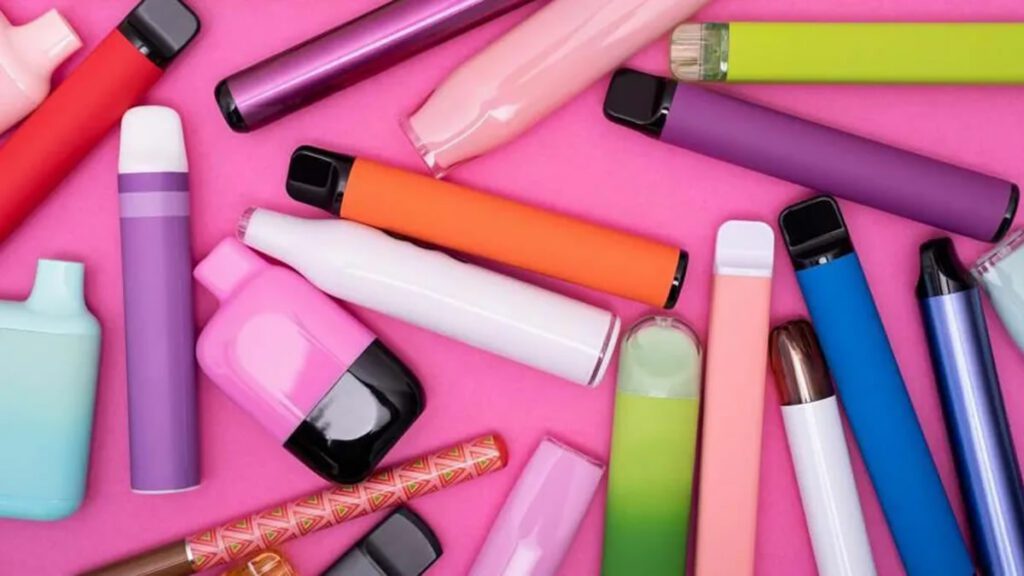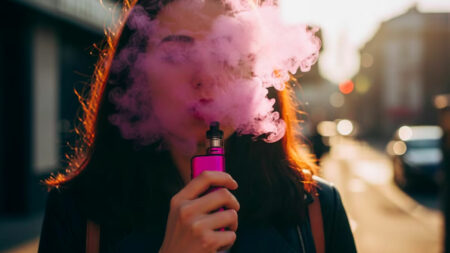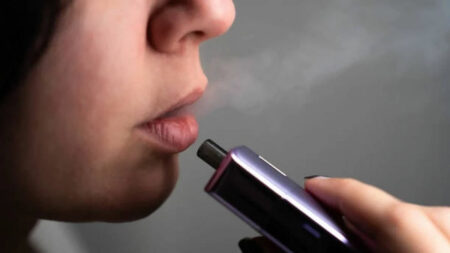The UK government has confirmed that the sale of single-use disposable vapes will be banned in England and Wales from June 2025. The decision, initially announced in January by the previous government but not implemented before the general election, aims to safeguard children's health and mitigate environmental damage caused by these products.
Vape Usage Surges, Driving Concerns Over Youth Addiction and Environmental Impact
According to the Department for Environment, Food, and Rural Affairs (Defra), vape usage in England has skyrocketed by more than 400% between 2012 and 2023, with 9% of the British public now purchasing and using these products. The number of people who vape without ever having smoked has also risen significantly in recent years, particularly among young adults.
While it is illegal to sell vapes to anyone under 18, disposable vapes—often sold in smaller, more colorful packaging than refillable devices—have been identified as a "key driver behind the alarming rise in youth vaping," according to the previous government when it first outlined the ban.
Public health minister Andrew Gwynne emphasized that banning disposables would "reduce the appeal of vapes to children and keep them out of the hands of vulnerable young people." The NHS acknowledges that while vaping is substantially less harmful than smoking, its long-term risks remain unknown due to its relatively recent emergence.
Environmental Concerns and Waste Management Challenges
Single-use vapes pose significant environmental challenges, as they are difficult to recycle and often end up in landfills. Their batteries can leak harmful waste, such as battery acid, lithium, and mercury, into the environment. Moreover, batteries discarded in household waste cause hundreds of fires in bin lorries and waste-processing centers annually.
Defra estimates that nearly five million single-use vapes were either littered or thrown into general waste each week in 2022, marking an almost four-fold increase compared to the previous year. In 2022 alone, discarded vapes contained a total of more than 40 tonnes of lithium, sufficient to power 5,000 electric vehicles.
Industry Concerns and Calls for Alternative Measures
Vaping industry leaders have warned that the ban could lead to a rise in illegal sales of these products. John Dunne, director general of the UK Vaping Industry Association, expressed concerns that the ban would "fuel" illegal sales, stating that authorities are already struggling to keep up with the existing black market in vaping products.
As an alternative to the ban, the association has called on the government to introduce a licensing scheme for retailers and distributors of vaping products, which would include mandatory age verification processes.
Implementation and Enforcement Strategies
The government plans to introduce legislation to ban the sale of single-use vapes from June 1, 2025, allowing retailers time to sell their remaining stock. The ban will cover all single-use vapes, regardless of their country of origin.
Online shops and major retailing platforms will be expected to use "online takedown procedures" to stop illicit suppliers when the ban comes into force, according to the Department for Health and Social Care.
The devolved governments have previously announced their intention to implement similar bans, and the UK government has stated that it is working with them to align the dates on which the bans come into force. Welsh Deputy First Minister Huw Irranca-Davies emphasized that introducing the bans on the same date across the nations would enable "high levels of compliance and consistent approach to enforcement across the UK."
As the UK moves forward with the ban on single-use disposable vapes, it is clear that balancing public health concerns, environmental protection, and industry interests will be a complex task. The effectiveness of the ban will depend on the government's ability to enforce the regulations, combat illegal sales, and provide support for those seeking to quit vaping or transition to less harmful alternatives.

Vape Content Creator | Flavor Reviewer | Lifestyle & Vape Culture Editor
Emily Carter is a vape-focused content creator specializing in flavor reviews, device aesthetics, and lifestyle-oriented vaping content. With hands-on experience testing disposable vapes and pod systems, Emily delivers clear, visually driven insights designed for adult consumers.








